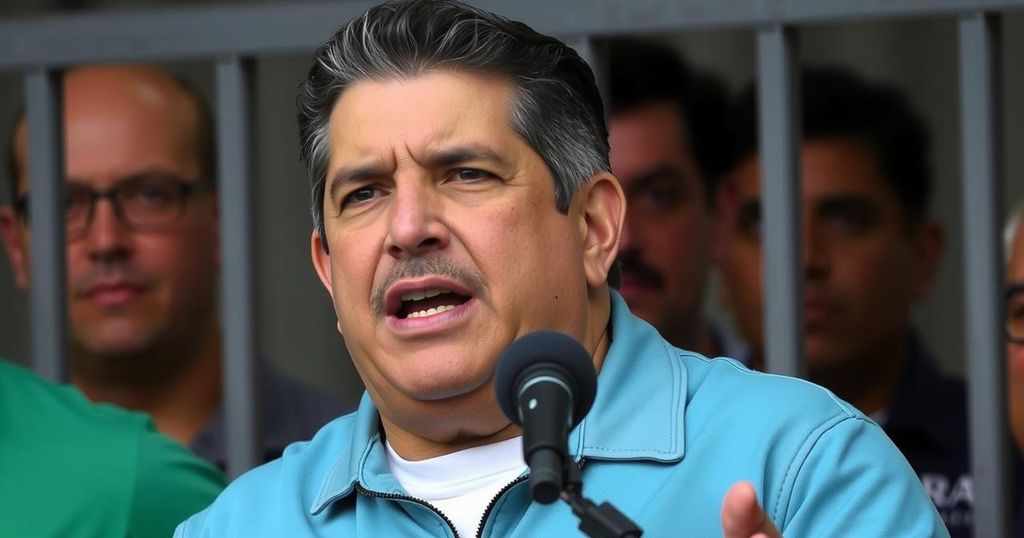Maduro Announces Release of Protesters Amid Legitimacy Crisis in Venezuela

In response to growing domestic and international pressures, Venezuelan President Nicolás Maduro has announced the release of over 100 protesters detained after controversial elections. This follows prior conditional releases amidst a legitimacy crisis that has seen over 2,000 individuals arrested. While some minors were among those released, ongoing human rights concerns remain, particularly regarding missing individuals and the government’s crackdown on dissent.
In a move aimed at alleviating domestic and international pressure, Venezuelan President Nicolás Maduro has announced the release of over 100 protesters who had been detained following the controversial elections. This decision follows a previous conditional release for 225 individuals last month amidst a deepening legitimacy crisis for Maduro’s regime. Since the presidential elections, which faced widespread allegations of fraud, the number of arrested protesters peaked at over 2,000. Human rights advocates have expressed concern, citing that only 25 of those released have been verified as of the latest reports.
Among the detainees recently released are at least 19 minors, highlighting the alarming trend of youth involvement in political dissent. The arrests stemmed from protests that occurred in late July, where demonstrators opposed the electoral outcomes declared by the National Electoral Council. Critics note that allegations of misconduct during these elections have resulted in severe repercussions for dissenters, with many faces charges of terrorism based on political opinions found on their devices or reports from neighbors.
Maduro’s latest action may serve as an attempt to project a semblance of flexibility and responsiveness to human rights violations amid escalating international scrutiny. The inauguration date is approaching, intensifying fears of renewed disavowal by global powers reminiscent of the 2019 crisis. Notably, the International Criminal Court continues to investigate human rights abuses cited during the regime’s response to dissent, which has included arbitrary detentions and allegations of sexual violence.
In conjunction with these releases, concerns surrounding missing individuals persist. Notably, efforts by organizations such as Human Rights Watch have called for clarity regarding the status of Sofía María Sahagún Ortíz, a Spanish-Venezuelan national who vanished under suspicious circumstances at the airport. Such cases contribute to a growing narrative of enforced disappearances under the current administration, raising critical questions about the protections available for all Venezuelans.
The political landscape in Venezuela has been marked by civil unrest and accusations of election malpractice, particularly surrounding the recent presidential election results. Nicolás Maduro’s government has faced substantial allegations from both domestic and international observers regarding the legitimacy of the elections and the government’s subsequent heavy-handed tactics against dissenting voices. The severe crackdown on protests has led to numerous arrests, drawing condemnation from human rights organizations and foreign governments committed to safeguarding democratic principles. International investigations into these human rights abuses have been initiated, highlighting the systemic issues within the Venezuelan state that threaten both individual freedoms and political stability.
The announcement by President Maduro to release over 100 detained protesters suggests a tactical response to mounting pressure amid a legitimacy crisis following disputed elections. While the measure indicates an awareness of international and domestic criticism, the ongoing issues of human rights violations, missing persons, and the plight of minors arrested for participating in protests continue to overshadow these gestures. The Venezuelan government’s approach to dissent and its broader implications for democracy remain under intense scrutiny as the political situation evolves.
Original Source: english.elpais.com







